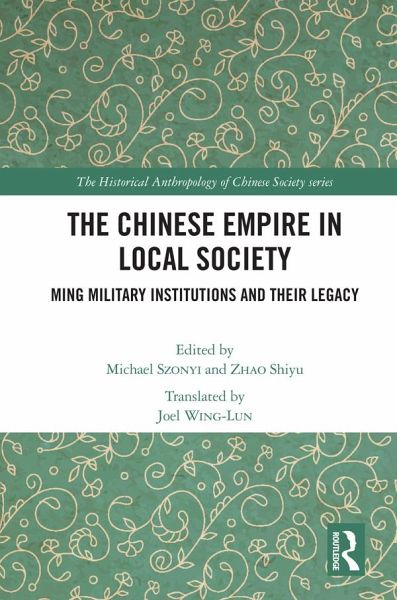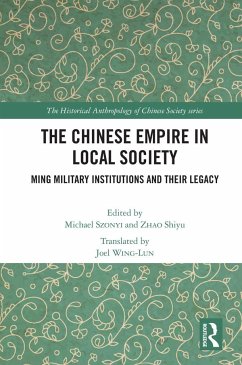
The Chinese Empire in Local Society
Ming Military Institutions and Their Legacies
Herausgeber: Szonyi, Michael; Zhao, Shiyu

PAYBACK Punkte
84 °P sammeln!
This book explores the Ming dynasty military, its impact on local society and its many legacies for Chinese society. It is based on extensive original research by scholars using the methodology of historical anthropology, an approach that has transformed the study of Chinese history by approaching the subject from the bottom up.













